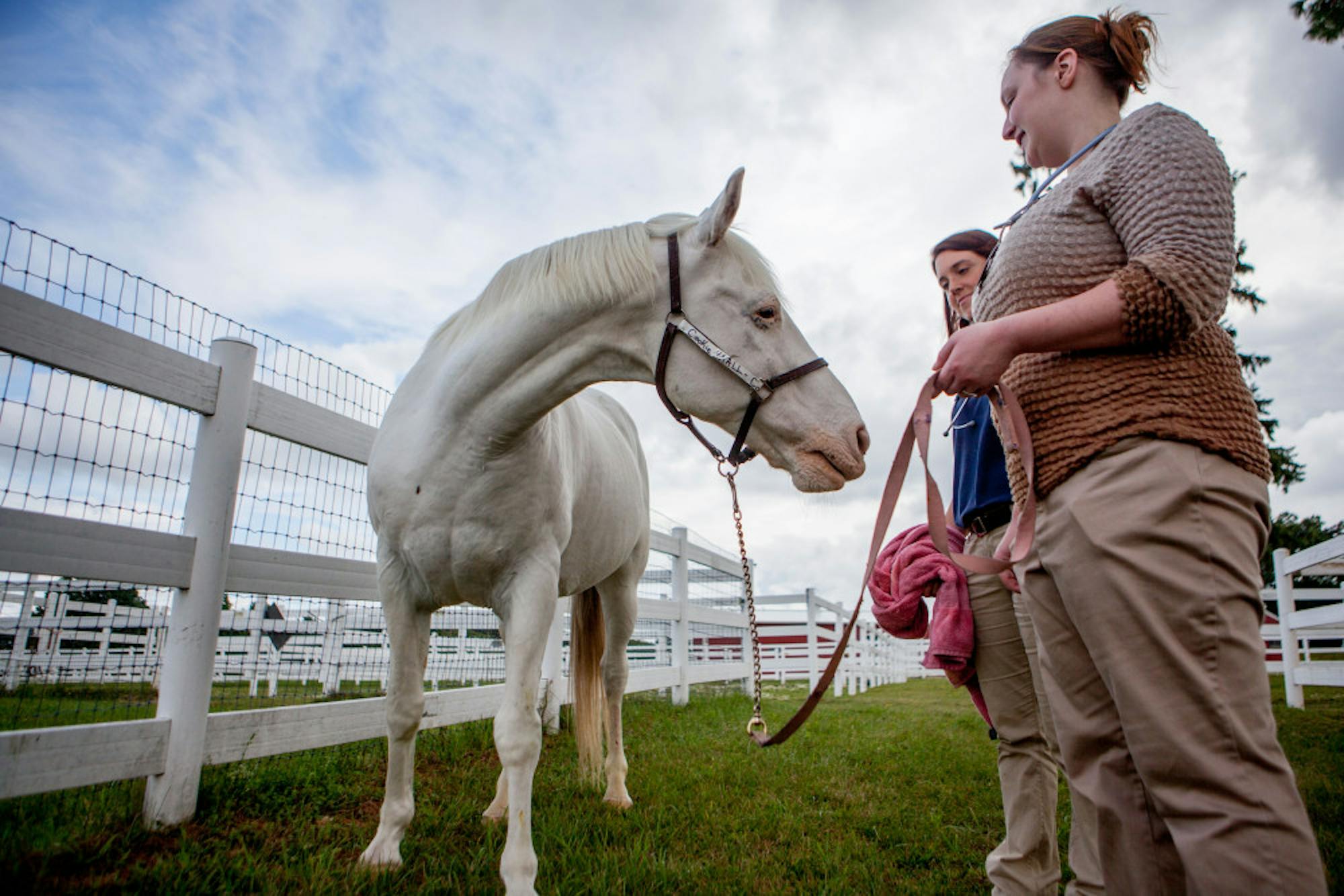This spring, students from various health and environmental fields will take part in a new course, brought to Tufts as part of a global initiative known as One Health, that hopes to compel them to think along interdisciplinary lines.
“One Health is the idea that human, animal and environmental health are all inextricably linked, and we should no longer research these fields in siloed manners,” junior John Ramatowski, who founded a student group in September 2013 that promotes One Health at Tufts, said.
As health-related issues become more complex, the One Health approach promotes cooperation as the path to new solutions.
“We need to make sure that the next generation of physicians and health professionals can speak with an informed voice to a variety of health-related topics,” Ramatowski said.
Ian Wong, director of the department of health promotion and prevention at Tufts, explained the concept by pointing to physicians' confusion when it was discovered that monkeypox was transferable to humans.
“It seems so funny, because here's one group who is perplexed by it, and here's one group who has been working on it for years and treating it,” Wong said. “If only the two had come together and talked, a lot of humans would not have had to go through the pain and struggles.”
According to Ramatowski, he meets with four undergraduate team members on a weekly basis who strive to actively promote One Health on the undergraduate campus in order to try to grab students’ attention before they become locked into specialized tracks. This student team has been working with Wong and Beth Farrow, health educator and prevention specialist, along with many other professionals throughout the university.
The group is pushing to implement a number of measures to increase interest in the concept on campus, including creating an academic track to study One Health and identifying a common reading book to be distributed to an incoming class before matriculation.
“Our additional goals include developing a One Health track, which consists of several courses that educate students about a variety of health disciplines; so epidemiology, animal behavior, community health, all these different aspects, and we propose to have a One Health track similar to a pre-med track developed and implemented on the undergraduate campus within three years, and within six years we would like to see One Health as a secondary major established on the undergraduate campus,” Ramatowski said.
Ramatowski also heads the Peer Health Collaborative, an umbrella organization for health-related organizations on campus. He hopes to expand the collaborative to include members from a wide scope of disciplines, and is currently working with TCU Senate to contact related groups. He plans on surveying these groups to identify a local issue that the collaborative could work together to solve, a process that he hopes will eventually form a One Health Foundation.
“We would like to ultimately select a project either in Medford or Somerville that could draw on all of our groups' expertise and show how all of these different health groups can be used to solve a real world [problem],” Ramatowski said.
Dr. Jennifer Allen, head of the department of community health, has also been working with the student group to further develop the initiative and is teaching the new course this semester. She said that she proposed a summer course in One Health last year, but she had to cancel it; however, she later received a Tufts Innovates! grant through the provost's office in order to teach the course this semester.
The course is a fully enrolled senior seminar in the Community Health department that will focus on an understanding of agent-host relationships, overlap between human and animal health, infections and chronic disease and the greater effects of climate change.
“Our goal is to identify One Health issues that are local, so that we can actually go into the field and help community organizations that are already working on these issues and contribute to the community agenda,” Allen said.
According to Allen, she is leading the course along with Christine Rioux, research assistant professor of public health and community medicine at the medical school, and Joann Lindemayer (V '85), associate professor of public health in the department of infectious disease and global health at the Tufts Cummings School of Veterinary Medicine. Allen said she and Lindemayer will be teaching the course, while Rioux will focus on field activity.
“As people become increasingly specialized, it's harder ... I think it's important to think about the education for undergrads, before people become sort of immersed in their professional silos, [so that] it's easier to think about the larger systems that are in place that influence the health of all species,” Allen said.
According to Wong, the concept has been explored for over 20 years by Tufts veterinary students, but due to a lack of organization and communication between campuses, this student initiative has been the first real push to make One Health a university-wide movement.
“It has been on the administration's mind, but students are now really pushing the creation of the One Health concept at Tufts,” Ramatowski said. “Students are the ones who are driving the administration to allow cross-enrollment at different schools, and making sure that students have all these different and new educational opportunities.”
According to Farrow, President Anthony Monoco and Provost David Harris have been embracing the student initiative as a great opportunity to transform Tufts into a “true university” by creating bridges across majors and campuses rather than maintaining several isolated schools and programs.
“I think it's one of those areas that could be very unifying for the universities,” Farrow said. “You really could have most of the schools be part of this in some way.”
Allen believes that Tufts is uniquely positioned to propel the initiative because of its unique resources.
“Tufts has a unique constellation of schools that really lets us bring very different disciplinary lenses to the field of One Health," she said. "There are not many schools that have a vet school, med school, school of public health, school of nutrition, school of international relations and public policy. All of those things make Tufts really uniquely positioned to carry forth a One Health agenda.”
Students strive to establish One Health initiative at Tufts

Jordan White, center, and Beth Smith, right, two students at the Cummings School of Veterinary Medicine, visit Cookie, a horse with dermatitis.





